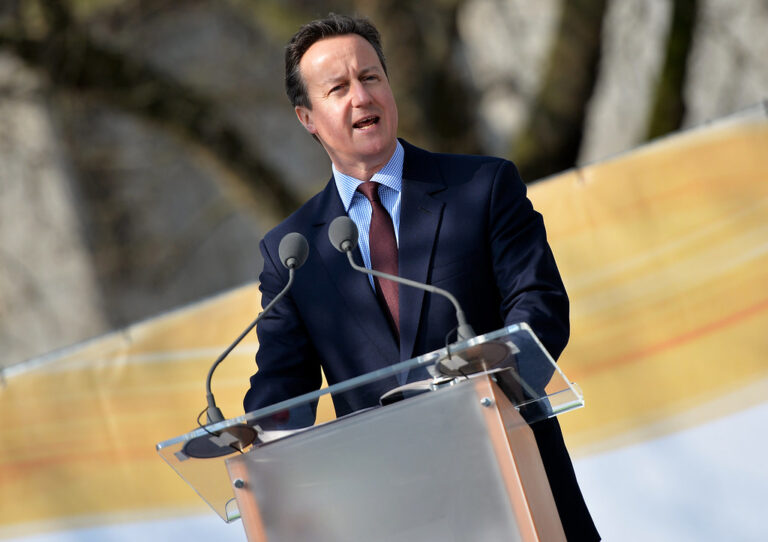The UK is catching up with many of its European neighbors when it comes to solar energy, but recent signs are hugely promising and the country remains poised for a solar revolution.
In 2013, then British Prime Minister David Cameron pledged to “eliminate green junk,” which he said was proving too expensive for bill payers. His government then ended the Green Deal scheme in 2015 and removed subsidies for installing solar panels. Coupled with a weakening of UK feed-in tariff offerings to consumers, solar installations across the country slowed, while other European countries made notable progress.
Although this hindered solar adoption in the UK at the time, positive steps have been made in recent years and the prospects for residential solar in the country are very positive.
For example, the Smart Export Guarantee (SEG) scheme, introduced in 2020, ensures that homeowners are more fairly compensated for excess electricity they feed back into the grid and sends a clear signal about the country’s direction of travel.
In 2022, the UK government will abolish value added tax (VAT) on solar panels and batteries, among other energy-saving materials. This has led to greater adoption of solar energy in the UK as installation costs have fallen and payback times for solar panels have shortened. Industry standards authority, the Microgeneration Certification Scheme, reported more than 180,000 domestic solar installations in 2023 – a rate of more than 15,000 per month, making 2023 a record year for solar energy in the country.
The UK still remains a European outlier in terms of solar energy adoption and is far behind where it could be; only 6% of British households have solar energy, compared to 25% in the Netherlands, 22% in Belgium and 9% in Switzerland and Austria. To put this into context, last year just 4.7% of the UK’s electricity was generated from solar energy, compared to 31.9% from gas and 31.5% from wind energy, according to figures from utility National Grid.
While there is clearly more to be done, the compelling benefits of solar power make it a matter of when, not if, Britain will boost its pace of solar installation.
In the face of an increasingly volatile energy market and expensive utility bills, residential solar offers environmental benefits, energy security and significant financial savings. The government-sponsored initiative, the Energy Saving Trust, has estimated that an average household with a 3.5 kWp solar system could save between GBP 135 ($169) and GBP 360 in bills annually at current Energy Price Cap rates.
Moreover, remaining bureaucratic hurdles can likely be resolved relatively quickly and easily. That is why at Otovo we are focusing on expanding in the United Kingdom. Solar energy will win everywhere and the UK is no exception.
Simplifying solar energy
Some of the most impactful measures that can be implemented to support solar energy across the UK are clear for all to see. Take grid connections, which can lead to months of delays for consumers. Standardizing the application process across all electricity distribution network operators, making more resources available and streamlining the permitting process would have a hugely beneficial effect.
Once systems are connected, and as the increase in solar energy use leads to more green energy being produced across the UK, feeding excess energy back into the grid will become a powerful tool in the country’s arsenal and an attractive opportunity for new solar energy users.
Although the UK has the SEG, which requires electricity suppliers to pay individuals for low-carbon electricity that they export back to the National Grid, the incentive for consumers to do so is limited due to the relatively poor deal on offer for this energy, compared with current electricity prices. Of the current energy suppliers, only Octopus Energy offers an attractive and valuable deal for consumers to do this. Steps can be taken here to ensure that the deal offered to consumers is stronger across all suppliers.
The cost of solar energy can be a disappointment to many people. That’s why Otovo launched solar subscriptions in Britain in March 2024, with no down payment and the obligation to take care of the installation and maintenance of the panels, which come with a 20-year warranty. Customers will fully own the panels after twenty years and the battery after ten years. They can also redeem them at any time during the payment plan.
In our other European markets, customers are attracted to the opportunity to enjoy the benefits of solar energy from day one without having to save significant amounts of money to install a system. Simply put, the flexibility offered by leasing financing will be a game-changer for the UK’s current growth in residential solar adoption – as is already evident in our other European markets.
We are confident that with the right support, solar adoption in Britain will increase. Moreover, the above measures are neither inherently politically challenging nor costly for taxpayers. Far from being a political football, residential solar energy is an open goal.
Naturally, the choices made by whoever forms the next government will have an impact on the number of solar installations in the UK in the short term. In the long term, however, solar energy’s positive trajectory is indisputable as more and more households can reap the financial benefits and energy security, not to mention the obvious environmental benefits. We look forward to Otovo playing our part in bringing solar energy to the UK on a mass scale.
About the author: Jina Kwon is Managing Director for the UK and Ireland at European solar marketplace Otovo.
The views and opinions expressed in this article are those of the author and do not necessarily reflect those of the author pv magazine.
This content is copyrighted and may not be reused. If you would like to collaborate with us and reuse some of our content, please contact: editors@pv-magazine.com.


